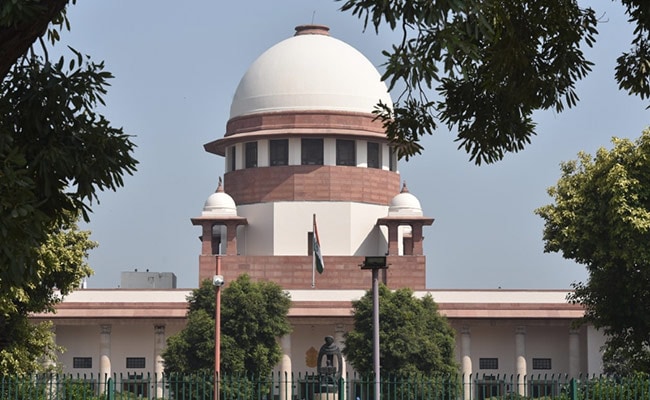
[ad_1]

Centre had argued that Jammu and Kashmir was one among a sort.
New Delhi:
Jammu and Kashmir is just not one-of-a-kind and Punjab and the Northeast have confronted comparable conditions, the Supreme Court identified yesterday, questioning the necessity for bifurcation of the border state in August 2019.
Chief Justice of India DY Chandrachud additionally questioned how to make sure that the facility to bifurcate a state won’t be “misused” as soon as it’s conceded to the Central authorities — some extent that led to a dialogue on why the query of bifurcation couldn’t have been settled by parliament.
During Day 12 of the listening to of a bunch of petitions difficult the scrapping of Article 370, the Centre had argued that Jammu and Kashmir was one among a sort.
“If Gujarat or Madhya Pradesh were to be bifurcated, then parameters would be different,” mentioned Solicitor General Tushar Mehta.
Justice SK Kaul, who was a part of the five-judge constitutional bench led by Justice Chandrachud, identified that the nation has many states with borders.
When Mr Mehta responded that every one the neighbouring nations are “not friendly” and there’s a must mainstream Jammu and Kashmir in view of its historical past and present scenario — “stone pelting, strikes, deaths and terror attacks” — the Chief Justice weighed in.
“Once you concede that power to the Union in relation to every Indian state, how do you ensure that the kind of abuse they apprehended — this power will not be misused?” he mentioned.
“It is not one of a kind situation,” added Justice Kaul. “We have seen the northern border Punjab — very difficult times. Similarly, some states in the northeast… Tomorrow if there is a scenario that each of these states face this problem…,” he added.
“Does parliament have the power to convert an existing Indian state into a Union Territory?” questioned Chief Justice Chandrachud.
The courtroom additionally mentioned that even when the function of the Constituent Assembly solely had a recommendatory function relating to Article 370 — which gave Jammu and Kashmir its particular standing – that doesn’t imply it may be overridden by the President of India. In an earlier listening to, the courtroom had mentioned the federal government should justify process it adopted to scrap the Article 370, because it couldn’t assume that “end justifies the means”.
[adinserter block=”4″]
[ad_2]
Source link